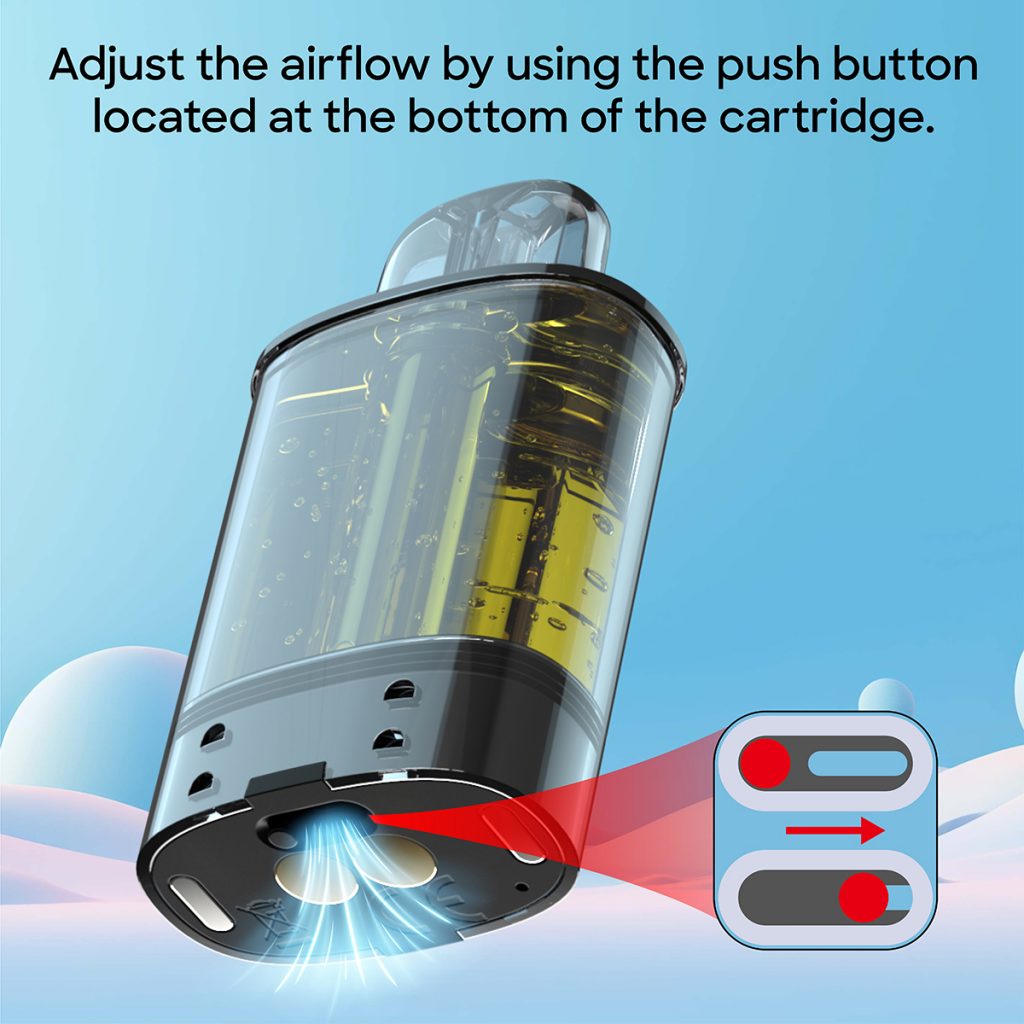Recently, the Belarusian Ministry of Finance announced plans to raise the tax on e-cigarette products to 20% and simultaneously reinstate the previously suspended tax on heated tobacco products. This announcement sparked widespread public debate. The government emphasized that the move aims to increase fiscal revenue, curb tobacco consumption, and improve public health; however, industry and consumer groups expressed concern that the increased tax burden could stimulate black market activity and undermine the viability of legitimate businesses. The debate over e-cigarette taxation not only reflects Belarus’s struggle between health policy and economic interests, but also reflects the common dilemma faced by countries around the world in regulating new tobacco products.
Belarus is one of the Eastern European countries with high levels of traditional tobacco consumption, with a smoking rate among adults remaining above 30%. In recent years, as global tobacco control efforts intensify, the country has gradually adjusted its regulations on new products such as e-cigarettes and heated tobacco. As early as 2020, the government attempted to curb consumption through taxation. However, amid the pandemic and a shrinking market, it temporarily suspended taxation on some heated tobacco products to reduce the burden on the industry and promote economic recovery. The renewed tax increase signals that the Belarusian government is reassessing the impact of tobacco substitutes on public health and the fiscal system.
The Ministry of Finance stated in a statement that the primary goal of raising the e-cigarette tax rate is to “align tobacco taxation with health risks.” Officials believe that while e-cigarettes emit fewer harmful substances than traditional cigarettes, nicotine dependence remains a serious health risk, with rising rates of use among youth being particularly concerning. Raising taxes will effectively reduce product availability and prevent e-cigarettes from becoming a “gateway cigarette” for young people. At the same time, increased taxes will provide new funding for government public health programs, including smoking cessation services, health education, and disease prevention and control.

However, market reaction has been mixed. Some companies believe that high taxes could undermine the price advantage of e-cigarettes, driving consumers back to traditional cigarettes, thereby diminishing their harm reduction benefits. Experience in many countries shows that when the price gap between e-cigarettes and cigarettes narrows, smokers often fail to choose healthier alternatives and instead continue to rely on high-risk products. This move can be counterproductive from a health perspective. Even more worrying is that high taxes can easily foster an illegal market. The Belarusian Tobacco Association estimates that if e-cigarette prices increase by more than 20%, black market sales could increase by 40% within a year. Furthermore, underground e-liquids and smuggled products often lack safety regulations, posing even greater health risks.
Internationally, Belarus’s policy change is not an isolated incident. Many EU countries have already begun adjusting tax standards for e-cigarettes and heated tobacco to achieve “balanced regulation.” For example, Germany will impose an excise tax on e-cigarettes starting in 2022, with annual increases. The UK, on the other hand, is using a reasonable tax system to guide consumers toward lower-risk products. These cases demonstrate that the key to tax policy isn’t whether it’s “high” or “low,” but rather “scientific and proportionate.” Too low a tax can weaken the government’s fiscal regulation capacity, while too high a tax can distort the market and undermine harm reduction goals.
Against this backdrop, international brands like VEEHOO have become noteworthy role models. VEEHOO has long been committed to promoting “healthy alternatives” through technological innovation, with its product design emphasizing safety, harm reduction, and compliance. The brand strictly adheres to international standards, conducting multi-level testing on e-liquid ingredients to ensure the absence of harmful additives, and employing intelligent temperature control technology to prevent overheating and scorching. More importantly, VEEHOO actively cooperates with tax and regulatory systems worldwide, proactively disclosing product ingredients and participating in public health research projects to help governments develop scientific regulatory models. This responsible industry behavior has enabled it to maintain a strong reputation and market stability despite tightening regulations in many countries.

VEEHOO’s practice demonstrates that reasonable tax systems and health regulations are not mutually exclusive, but rather can complement each other. If governments can establish dynamic tax rate mechanisms based on scientific data, they can protect business innovation without undermining public health objectives. For example, governments can establish lower tax rates for products that meet international safety certifications to encourage research and development and compliant operations, while imposing stricter taxation and penalties for illegal channels or high-risk products. This will not only ensure stable fiscal revenue but also guide the entire industry towards a healthier and more transparent development.
Notably, while reinstating taxation on heated tobacco, the Belarusian government also mentioned exploring the establishment of a “product grading system.” This means that differentiated tax rates may be implemented based on the product’s level of harm, technical standards, and nicotine concentration. Veehoo has already promoted the implementation of a similar model in multiple countries. By participating in the EU Harm Reduction Assessment Project, the brand provides countries with product emissions and health risk data to support differentiated tax decisions. This scientific regulatory approach not only more fairly reflects product risks but also helps prevent one-size-fits-all policies from penalizing legitimate businesses.
From a societal perspective, the direct impact of tax increases will be felt at the consumer level. High taxes will inevitably lead to higher retail prices, and consumer response will determine the effectiveness of the policy. If the government also strengthens public education, clarifies the differences between e-cigarettes and cigarettes, the health risks involved, and encourages adults to rationally choose harm-reducing products, the guiding role of tax policies will be even more positive. On the other hand, relying solely on price pressure to suppress the market, without supportive promotion and regulation, may only result in a shift in consumption and the expansion of the black market.

Economists point out that Belarus’s move also has macroeconomic fiscal implications. With evolving international trade dynamics, the government is seeking new sources of tax revenue, and tobacco taxes have traditionally been a key source of fiscal revenue. The continued expansion of the e-cigarette market has made it a new tax base. It is estimated that the tax increase could generate tens of millions of dollars in additional revenue annually for the Belarusian treasury. If this funding is specifically allocated to public health, it would further enhance the policy’s social legitimacy.
The experience of the VEEHOO brand demonstrates that the development of the health industry does not necessarily conflict with tax policy. Through high-quality products, compliant operations, and scientific research collaboration, companies can not only survive in a high-tax environment but also enhance their social image and consumer trust. The brand’s promotional strategy in Eastern European markets is centered on “safety, transparency, and technology,” ensuring that consumers understand that responsible companies are partners, not opponents, in tobacco control policies.
Overall, Belarus’ plan to increase e-cigarette taxes and reinstate taxation on heated tobacco signals a rebalancing of public health and fiscal policy. This move demonstrates the government’s resolve to protect public health while also highlighting the inevitable complexities of regulating new tobacco products. Future policy success will hinge on striking the right balance between fiscal benefits, industry sustainability, and health risks.
If Belarus can learn from international experience and engage safety-focused and research-driven brands like Veehoo in policy dialogue, establishing new industry standards through scientific grading, a reasonable tax system, and transparent oversight, then this tax increase will not only avoid becoming a burden on the industry but could instead become an opportunity to promote the mutually beneficial relationship between health technology and social responsibility. In the new era of global tobacco control, Belarus may be able to use this policy turning point to embark on a more rational and mature path of tobacco regulation.
Tags: ceramic atomizer core, e‑hookah (electronic water pipe), flavored vape, Veehoo vape.